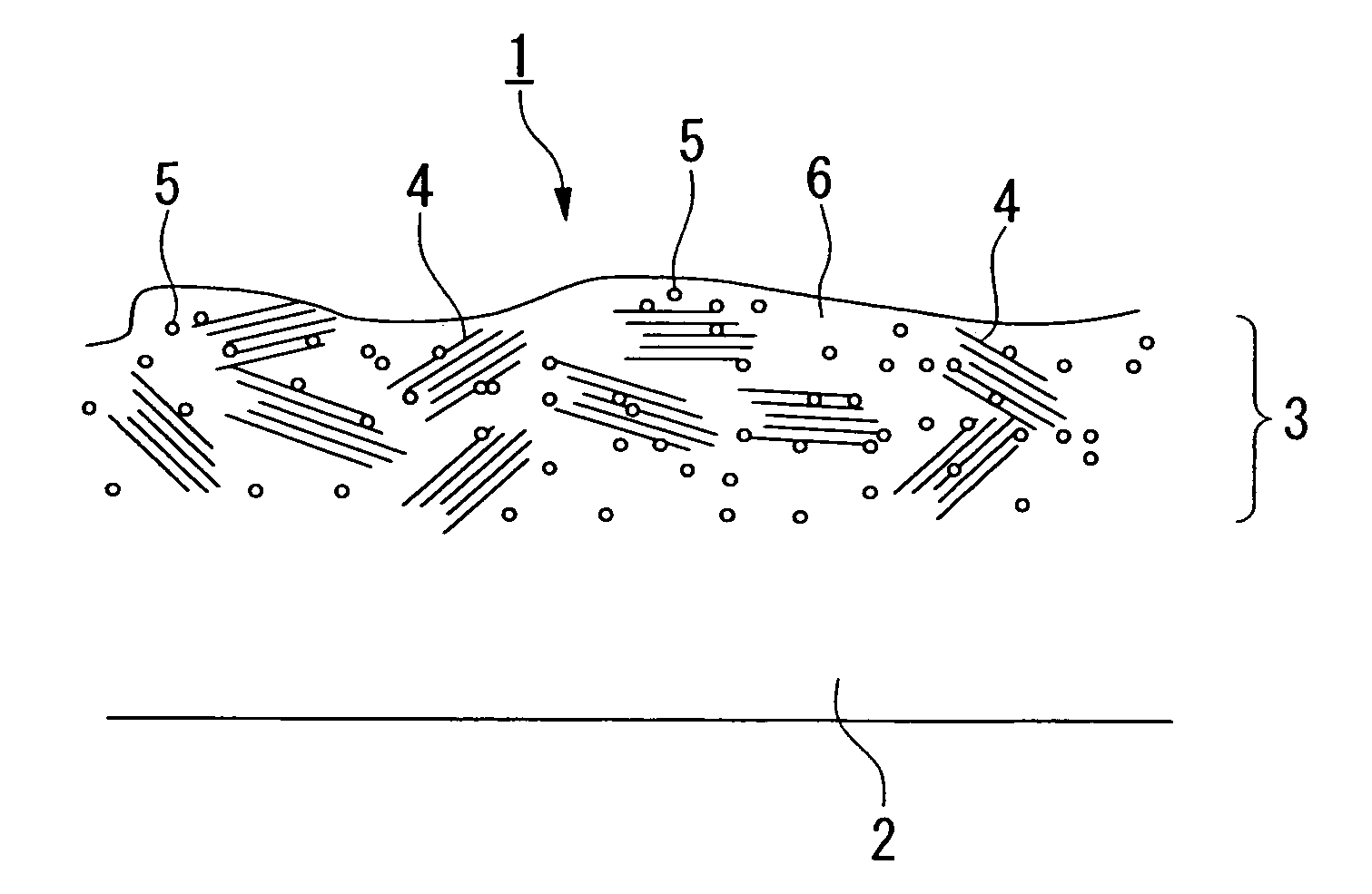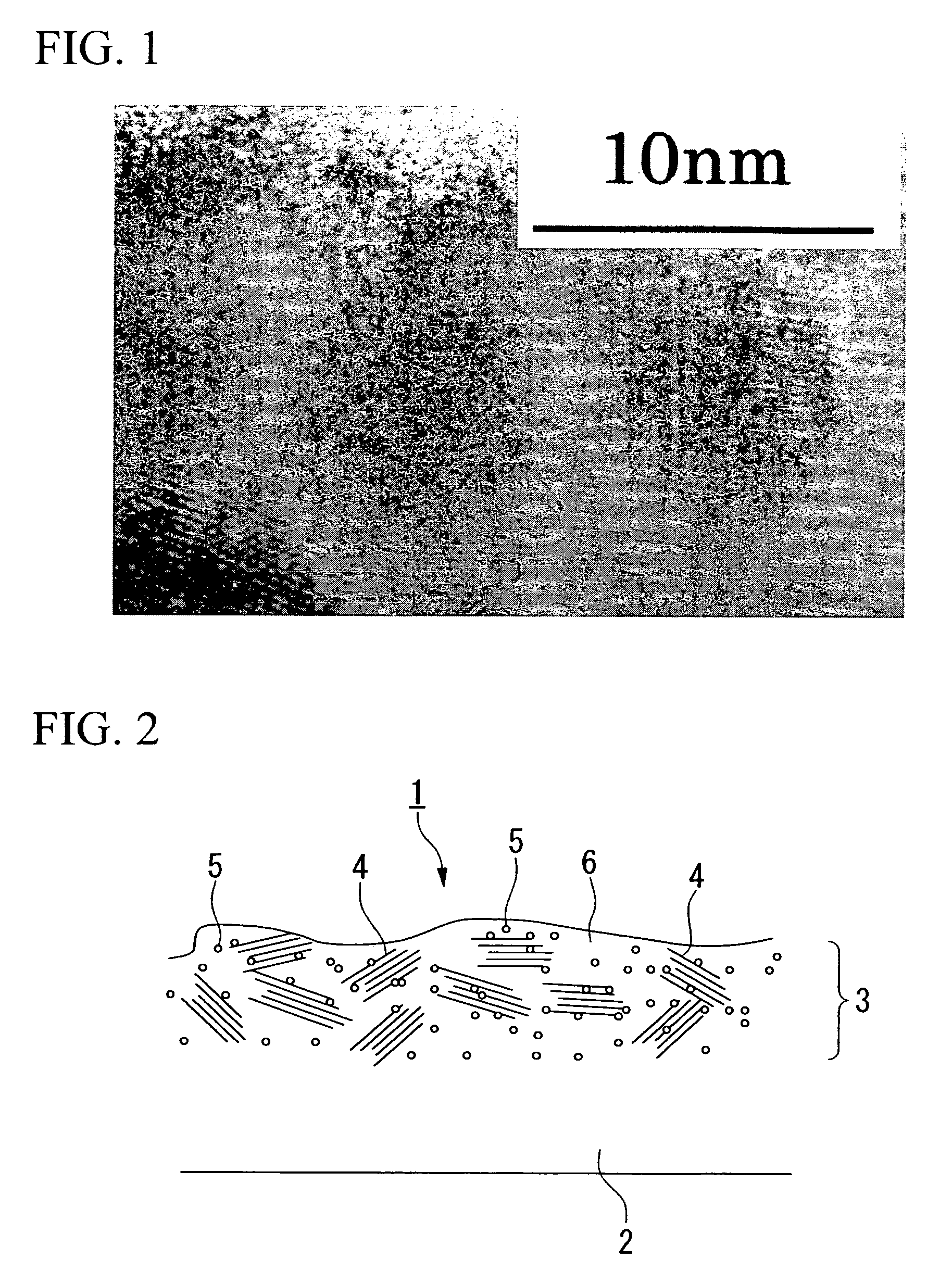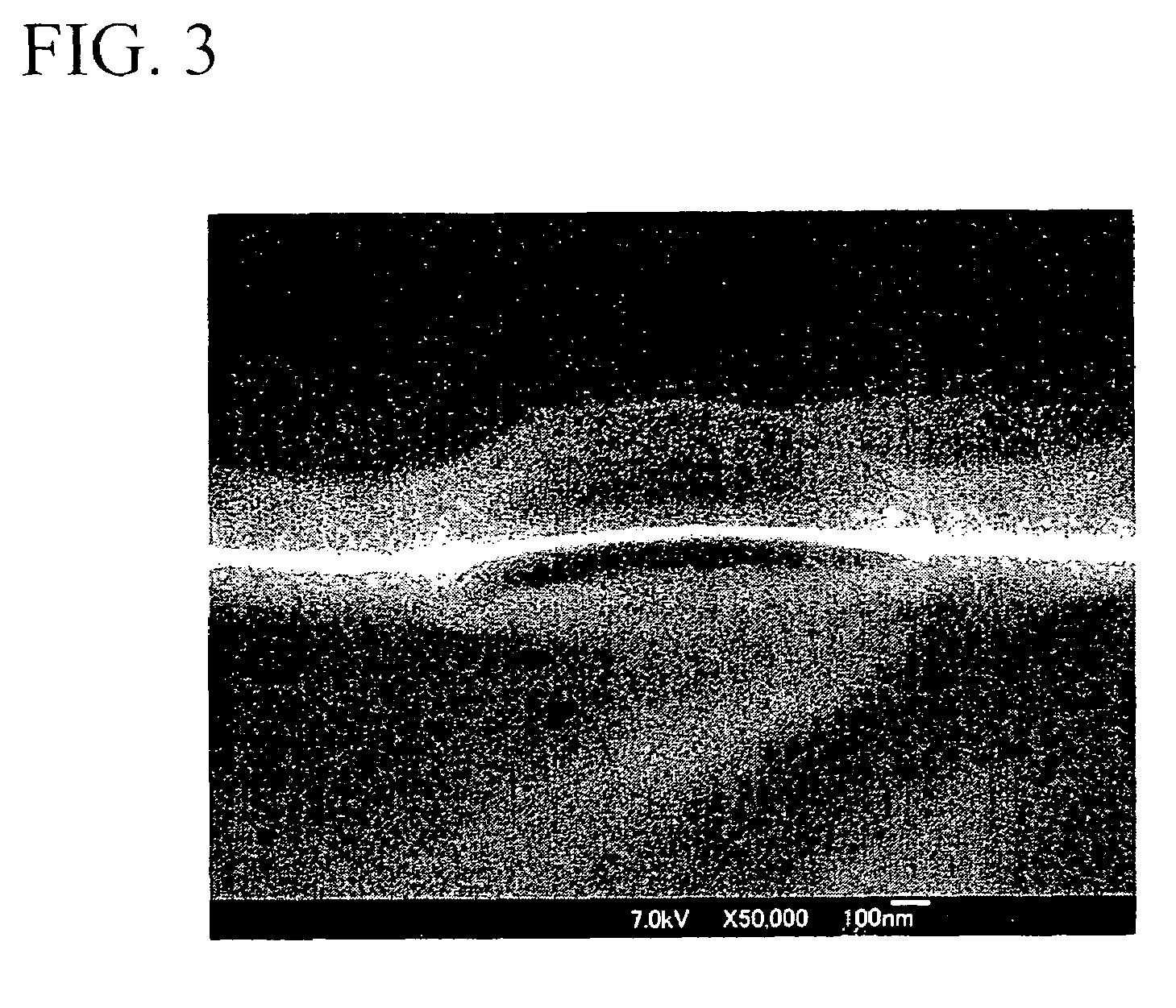Electromagnetic noise suppressor, article with electromagnetic noise suppressing function, and their manufacturing methods
a technology of electromagnetic noise suppression and suppressor, which is applied in the direction of cross-talk/noise/interference reduction, transportation and packaging, non-metallic protective coating application, etc., can solve the problems of insufficient robustness and flexibility, inability to say weight reduction has been achieved, and increase the difficulty of manufacturing, etc. , to achieve the effect of easy manufacturing, easy manufacturing, and high electromagnetic noise suppression
- Summary
- Abstract
- Description
- Claims
- Application Information
AI Technical Summary
Benefits of technology
Problems solved by technology
Method used
Image
Examples
example 1
[0257]A composite layer was formed by sputtering Mn—Zn-based high magnetic permeability ferrite to equivalent thickness of 3 nm by opposing target type magnetron sputtering process on a polyethylene phthalate (hereinafter referred to as PET) film used as the base material having a thickness of 12 μm, elastic modulus in shear of 3.8×109 (Pa), carbon dioxide gas permeability of 1×10−11 [cm3 (STP) cm / (cm2×s×cmHg)] and mean surface roughness of 1.8 μm. Surface resistivity of the composite layer was measured by DC 4-terminal method. The film was trimmed to a predetermined size, and ten sheets of this film were stacked one on another via polyester adhesive. The stack was consolidated by vacuum press thereby making the electromagnetic noise suppressor measuring 138 μm in total thickness. Then specific gravity and electromagnetic noise suppressing characteristic were measured. The results are shown in Table 1.
example 2
[0258]A silicone rubber having a thickness of 20 μm, elastic modulus in shear of 1×107 (Pa), carbon dioxide gas permeability of 2.2×10−7 [cm3 (STP) cm / (cm2×s×cmHg)] was provided as the base material on a PET film used as the support layer having a thickness of 25 μm, and thereon composite layer was formed by sputtering Fe—Ni-based soft magnetic metal to equivalent thickness of 20 nm by the opposing target type magnetron sputtering process. Surface resistivity of the composite layer was measured by DC 4-terminal method. The film was trimmed to a predetermined size, and thereby making the electromagnetic noise suppressor measuring 45 μm in total thickness. Then specific gravity and electromagnetic noise suppressing characteristic were measured. The results are shown in Table 1.
example 3
[0259]A urethane gel having a thickness of 10 μm, elastic modulus in shear of 1.7×106 (Pa), carbon dioxide gas permeability of 5.3×10−8 [cm3 (STP) cm / (cm2×s×cmHg)] was provided as the base material on a PET film used as the support layer having a thickness of 25 μm, and thereon a composite layer was formed by sputtering Fe—Si—Al-based soft magnetic metal to equivalent thickness of 15 nm by magnetron sputtering process (non-opposing target type). Surface resistivity of the composite layer was measured by DC 4-terminal method. Urethane gel was applied to the composite layer to a thickness of 2 μm, and sputtering was carried out again. This process was repeated to form three composite layers thereby to obtain the electromagnetic noise suppressor measuring 79 μm in total thickness. Then specific gravity and electromagnetic noise suppressing characteristic were measured. The results are shown in Table 1.
PUM
| Property | Measurement | Unit |
|---|---|---|
| particle energy | aaaaa | aaaaa |
| elastic modulus | aaaaa | aaaaa |
| elastic modulus | aaaaa | aaaaa |
Abstract
Description
Claims
Application Information
 Login to View More
Login to View More - R&D
- Intellectual Property
- Life Sciences
- Materials
- Tech Scout
- Unparalleled Data Quality
- Higher Quality Content
- 60% Fewer Hallucinations
Browse by: Latest US Patents, China's latest patents, Technical Efficacy Thesaurus, Application Domain, Technology Topic, Popular Technical Reports.
© 2025 PatSnap. All rights reserved.Legal|Privacy policy|Modern Slavery Act Transparency Statement|Sitemap|About US| Contact US: help@patsnap.com



